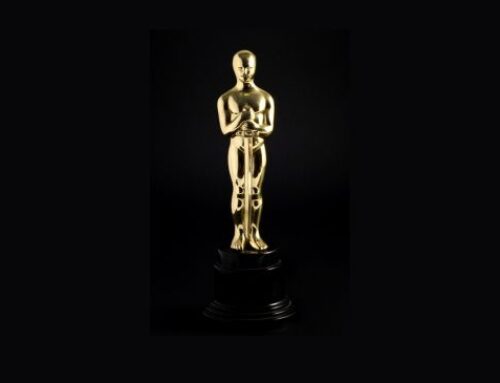 I didn’t watch television for nearly 20 years, roughly from when Knight Rider hit the air to when the first season of The Sopranos debuted. Only a few years after that I found myself – quite against my will – writing a daily TV column for a national newspaper, but as the one-time child who grew up with That Girl and Petticoat Junction in syndication and All In The Family as the peak of prime time art and ratings, I still find myself wondering, sometimes aloud, that they can do or say what they do on TV these days.
I didn’t watch television for nearly 20 years, roughly from when Knight Rider hit the air to when the first season of The Sopranos debuted. Only a few years after that I found myself – quite against my will – writing a daily TV column for a national newspaper, but as the one-time child who grew up with That Girl and Petticoat Junction in syndication and All In The Family as the peak of prime time art and ratings, I still find myself wondering, sometimes aloud, that they can do or say what they do on TV these days.
I was doing just that as I watched trailers for this season’s new TV shows, roughly 40 new dramas, sitcoms and reality shows premiering right now, with the expectation that at least 80 per cent of them will fail, getting cancelled either hours after their disappointing ratings are published or in an agonizing (for the people employed making them) slow death that might drag itself out till the spring, during which roles might be re-cast, characters and settings written out, and shows bounced from time slot to time slot.
What amazes me most of all is how little this all matters, and how much effort (and money) will have gone into these shows, leaving barely a trace except for a line on someone’s Internet Movie Database filmography. Last year’s new shows arrived amidst the same blizzard of press hype and advertising frenzy, with mugging portraits of eager actors plastered on the sides of buses and the walls of subway stations. And yet, who remembers Emily Owens M.D., The Mob Doctor, Ben and Kate, Guys with Kids or Go On, among the 40 odd casualties of last year’s TV season?
As ever, this fall’s TV season comes across as a rich buffet of warmed-over leftovers. If you’re still missing 24, there’s James Spader in NBC’s The Blacklist and, competing with it in the same time slot on CBS, Hostages. There’s a spin-off from the summer blockbuster comic book movie The Avengers in Agents of Shield, robot cops in Almost Human and a reboot of the crippled TV detective classic Ironside. You’ve got nascent superheroes in The Tomorrow People, adult-themed fairy tales in Once Upon A Time in Wonderland, vampires in NBC’s Dracula and The Originals on CW, and assorted supernatural doings on Lifetime’s Witches of East End and ABC Family’s Ravenswood, a spin-off from the network’s Pretty Little Liars.
And as ever, there’s nothing on ABC Family that your family will want to watch together. And I’ll make a bold prediction: if a Miley Cyrus sex tape ever surfaces, this tween- and teen-friendly outpost of the Disney empire will be the first to air it.
My other prediction is that whatever breakout hit emerges this year, the network behind it and the industry in general will be as unprepared for it as they were with last year’s hit: Duck Dynasty.
I’ll even go so far as to make a recommendation: If something is described as a family comedy, it will likely showcase the family as the earth’s gravitational centre of dysfunction. That’s the only conclusion I can get after watching teasers for shows like Welcome to the Family, Mom, Dads, The Millers, The Michael J. Fox Show, Back in the Game and The Goldbergs.
This is the point where I’m supposed to say something like “I’m not saying that we should return to patriarchal complacency of My Three Sons or Leave it to Beaver,” as that’s the standard issue qualifying weasel line that TV critics are issued when looking back at the family sitcom, whose history lies at the centre of TV comedy. At this point, though, that’s exactly what I wish we could see again, as the field has shifted so thoroughly to a comic universe where fathers are either impulsive brutes or foolish examples of arrested development, alternately slovenly, lecherous or gormless, while mothers are hormonal land mines forever on the hot-flashing verge of menopause while children are being moulded into unique bundles of neuroses in the bedlam of the family home.
Fathers come in for particular attention, though; in the course of viewing this season’s teasers and trailers, they could be glimpsed either menacingly wielding a baseball bat, leaving their wives on a whim or calling their kids “morons.” At this point in time, a show that gives patriarchy at least half a break would be a welcome if probably insignificant gesture at balance.
I was intrigued by the title of one of the shows; The Goldbergs is about a middle class family in the ‘80s, and supposedly based on the real-life family of its creator, Adam F. Goldberg. It’s significant that the show shares a title with another family comedy that began its run on radio in 1929 and ended it on television in 1956.
Created, written by and starring Gertrude Berg, it was once one of the most popular titles in American broadcasting, overshadowed only by Amos & Andy. It was set in the Bronx tenement apartment of Molly Greenberg and her very Jewish family, and was a sterling example of comic taste in an era when ethnic humour thrived before the era of political correctness. It also spawned a movie and Broadway musical, and featured episodes that addressed Nazi persecution of European Jews when mainstream newspapers were either shy or pointedly unaware of the topic.
It’s a relic of a world that no longer exists, but like the TV sitcoms of television’s later “golden age” in the ‘70s, the ratings for a single episode would be the envy of any network executive today, never mind their counterpart at a quality cable channel like HBO or AMC. It comes from a time when pop culture was quantifiably popular, and broad appeal meant tapping into a respect for the ethics and morals of audiences that seems quaint and impossible today, in a time of narrowcasting to audience segments and the worship of “edge” for its own sake.
We can congratulate ourselves on the creative plateaus that narrative TV has reached while movies languish, and talk of a “new golden age,” but billions of dollars and uncountable hours of effort are wasted at the big networks whose survival is still bound up in pursuing hits with as broad an audience as they can attract, a task they go about while being either unwilling or unable to respect the lives and circumstances of the people in that audience. It’s no wonder that this year, once again, the fall TV season seems to have become more quixotic and irrelevant than I could ever have predicted when I was being paid to write about it five days a week.




